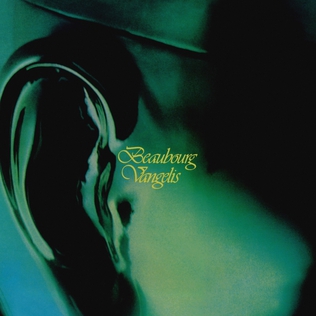 This is one of Vangelis’ most daring and experimental pieces. Listeners that love Vangelis experimental side will love it, while listeners that like his new age side will be covering their ears.
This is one of Vangelis’ most daring and experimental pieces. Listeners that love Vangelis experimental side will love it, while listeners that like his new age side will be covering their ears.
On Beaubourg, Vangelis creates an abstract electronic tone poem. This is not unlike some of the work of other electronic composers of this time (late 70’s), but is one of only two albums of this type of music that Vangelis has done. Listeners that like Stockhausen or Morton Subotnick will be right at home with Beaubourg.
Beaubourg is a city in France, but it’s difficult to know if this piece is supposed to be inspired or paint a picture of the city. Vangelis is somewhat reclusive, and rarely talks about his work.
The music is very abstract, and sounds like Vangelis improvised it on several of his Yamaha CS-80’s. It’s expressive, in the extreme sense of the word. He uses dramatic transformations of the sounds throughout. The sound palette is fairly consistent, but Vangelis plays with tonality by playing recognizable melodies for a few moments, and then drifting off into distorted madness. Pure tones transform themselves into distorted, clangorous metallic noises.
Some sections sound very tonal and even melodious. These features quiet, plaintive melodies. Vangelis plays with tonality by playing recognizable melodies for a few moments, and then drifting off into distorted madness. Most of Beaubourg is less tonal, and more clangorous. Vangelis plays with the ring-modulator on the CS-80, which transforms simple tones into complex, metallic noises.
This music will sound foreign to the ears of listeners accustomed to Chariots of Fire or 1492. It’s a must have for hardcore Vangelis fans. New listeners will want to try a few of his more accessible experimental pieces, though, like Heaven and Hell.

You made me curious, what’s the other “avant-garde” album’s name? I’m currently listening to Beaubourg for the first time and loving it
‘Invisible Connections’.
Thank you!